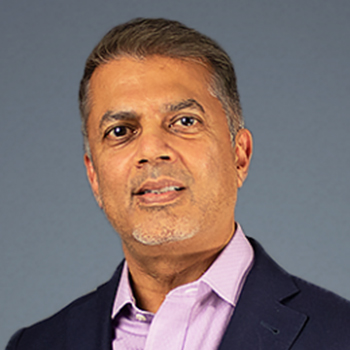Rohit Kulkarni, MD, PhD
-
Academic Faculty, Researcher
-
Islet Cell and Regenerative Biology
Senior Investigator and Margaret A Congleton Professor
Section Head, Islet Cell and Regenerative Biology
Professor of Medicine, Harvard Medical School
Dr. Kulkarni is a Senior Investigator at the Joslin Diabetes Center, Professor of Medicine and Faculty Member of the BBS Graduate Program at Harvard Medical School and Associate Director of the iPS Core (DRC). He is Principle Faculty at Harvard Stem Cell Institute and Associate Member of the Broad Institute of MIT/Harvard. Following his medical degree Dr. Kulkarni trained in Sir Steve Bloom's laboratory and the Diabetes Unit at Hammersmith Hospital in London and then moved to Boston to complete a Post-Doctoral Fellowship in the laboratory of Prof. C. Ronald Kahn. He is a recipient of the Ernst Oppenheimer Laureate Award, Visiting Professorship in Endogenous Pancreas Preservation and James H. Horner Distinguished Professorship. He is an elected member of the American Society for Clinical Investigation and American Association of Physicians. Dr. Kulkarni has been on the Joslin Staff and Harvard Medical School Faculty since 1999The research interests of the Kulkarni Lab are focused on two major complementary areas with the long term goal of designing therapeutic strategies to generate new beta cells to prevent and/or cure type 1 and type 2 diabetes.
First, the lab is investigating the significance of growth factor signaling mechanisms in the regulation of islet biology by creating genetic models to examine the roles of insulin/IGF-1 receptors and their substrate proteins. The lab has used conditional knockouts to complement in vitro models using primary islets from humans/rodents to dissect cross-talk between insulin/IGF-I, glucose, and incretin (glucagon like-peptide-1) signaling pathways in islet cells. We are using transplantation/parabiotic approaches to investigate inter-organ communication (e.g. between islets and liver/brain/adipose) to identify islet cell growth factors. Finally, we are studying pathways utilized by lymphocytes that allow regeneration of beta cells in type 1 diabetes.
A second area of interest is to derive induced pluripotent stem (iPS) cells from living human donors geared to differentiating them into mature insulin or glucagon secreting cells. We are also interested in differentiating iPS cells into mature cells that are involved in complications observed in patients with type 1 and type 2 diabetes. These approaches allow us to generate cells that maintain the genetic make-up of the living individual that would otherwise be unavailable, with the potential for characterizing their signaling properties, testing drugs in vitro and the possibility of transplantation in suitable patients.
- Distinction in Biochemistry from Bangalore Medical College and Bangalore University in 1986
- Recipient of the Young Scientist Award from the National Institute of Nutrition in India in 1990
- Recipient of the Weston Scholarship and Overseas Research Students (ORS) Award from the Royal Hammersmith Hospital in London from 1991 to 1994
- Recipient of the Endocrine Society Ernst Oppenheimer Laureate Award in 2007
- Elected member of the American Society for Clinical Investigation in 2007
- Recipient of the Endocrine Society’s Visiting Professorship of Endogenous Pancreas Preservation in 2010
- Recipient of the James H. Horner Distinguished Professorship in 2014
- Elected member of the Association of American Physicians in 2014
- Nominated for Prof. M.S.S. Ahuja Oration, Research Society for Study of Diabetes in India, 2015

